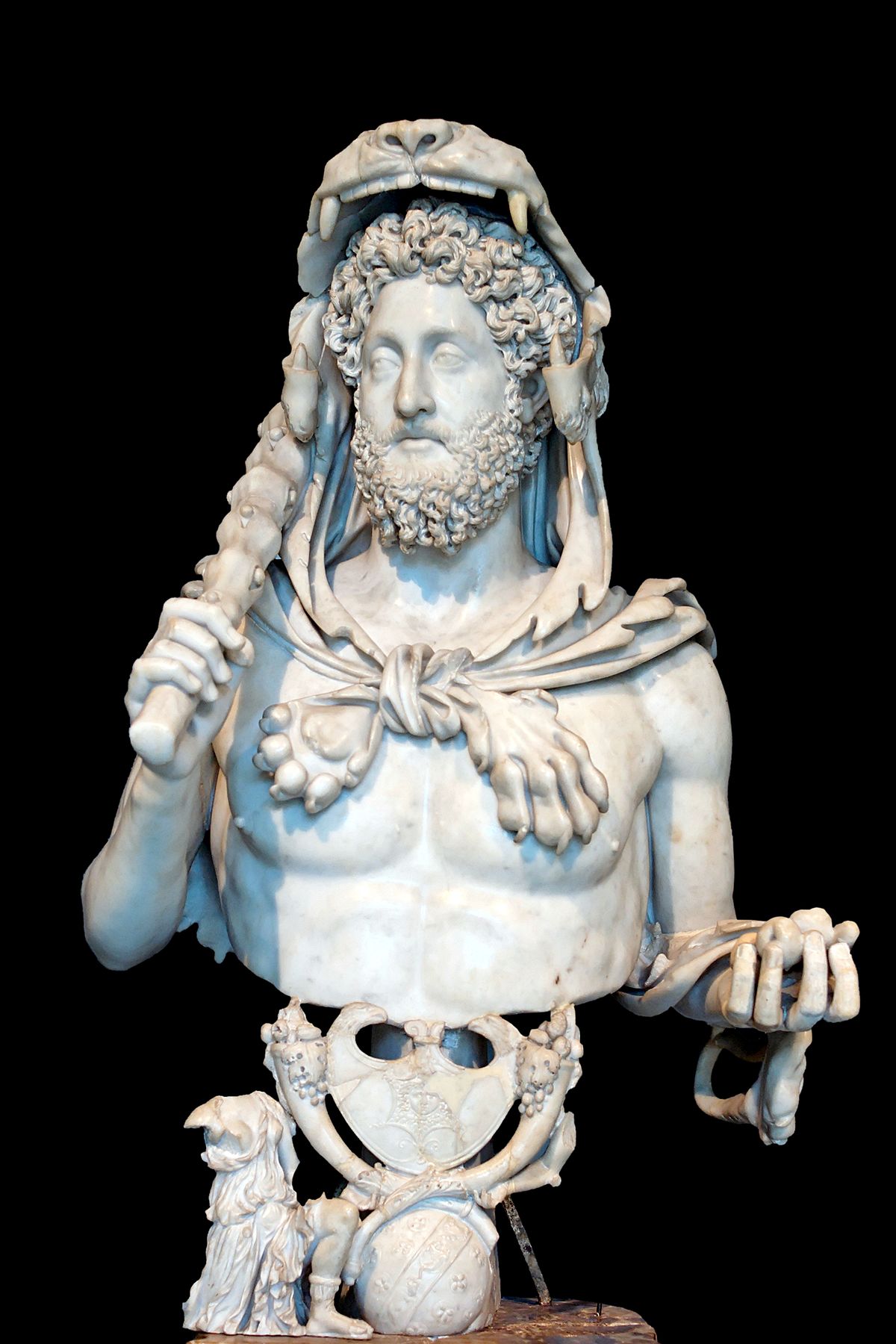Historia Augusta, Marc. Aur. 18-19
“Such a great man [Marcus Aurelius], joined to the gods in life as well as death, left behind his son Commodus—if he had been truly blessed, he would have not left a son. So it was not enough that people of all ages, gender, social position, and condition gave him honors, but a man would be declared sacrilegious if he did not have his image in his own home, should he be able to do so thanks to fortune.
Indeed, even today status of Marcus Antoninus [Aurelius] remain in many homes among the household gods. There was no lack of men who claimed that he predicted many things in dreams that they foretold future events in truth. Hence, , a temple was constructed in his honor, and there were priests dedicated to the service of the Antonines, along with Flaminess and Sodales, all those things which tradition has established for sacred rites.
“Some men report a thing which seems likely, that Commodus Antoninus, his son and successor, was born not from him but from adultery and they support such a tale with a common rumor. There was a time when Faustina, Pius’ daughter and Marcus’ wife, saw some gladiators pass and was set afire with love for one of them. Later, when she was suffering from a long sickness, she told her husband about this. When Marcus relayed this to the Chaldaeans, their advice was that he should have Faustina bathe herself in the blood of the killed gladiator and then lie with her husband.
When this act was complete, the passion was quenched, though their son Commodus was as a result born to be a gladiator not a princeps. This tale is treated as likely since there was never a son of a prince so virtuous with ways worse than a gladiator master, a street-actor or some arena-fighter, a man who could summon up a trophy of crimes from a surfeit of blessings.
Many others, however, claim that Commodus was really conceived through adultery because it is known that when Faustina was at Caieta she would choose lovers from the sailors and the gladiators. When this was mentioned to Marcus Aurelius so that he would reject her or kill her, he is reported to have replied, “If I divorce my wife, I must return her dowry.” And what did he consider her dowry but the empire which he had received when he was adopted by his father-in-law at Hadrian’s urging.”
Hic sane vir tantus et talis ac diis vita et morte coniunctus filium Commodum dereliquit: qui si felix fuisset, filium non reliquisset. 5 Et parum sane fuit, quod illi honores divinos omnis aetas, omnis sexus, omnis conditio ac dignitas dedit, nisi quod etiam sacrilegus iudicatus est, qui eius imaginem in sua domo non habuit, qui per fortunam vel potuit habere vel debuit. 6 Denique hodieque in multis domibus Marci Antonini statuae consistunt inter deos penates. 7 Nec defuerunt homines qui somniis eum multa praedixisse augurantes futura et vera concinuerunt. 8 Unde etiam templum ei constitutum, dati sacerdotes Antoniniani et sodales et flamines et omnia, quae de sacratis decrevit antiquitas.
Aiunt quidam, quod et verisimile videtur, Commodum Antoninum, successorem illius ac filium, non esse de eo natum sed de adulterio, ac talem fabellam vulgari sermone contexunt. 2 Faustinam quondam, Pii filiam, Marci uxorem, cum gladiatores transire vidisset, unius ex his amore succensam, cum longa aegritudine laboraret, viro de amore confessam. 3 Quod cum ad Chaldaeos Marcus rettulisset, illorum fuisse consilium, ut occiso gladiatore sanguine illius sese Faustina sublavaret atque ita cum viro concumberet. 4 Quod cum esset factum, solutum quidem amorem, natum vero Commodum gladiatorem esse, non principem, 5 qui mille prope pugnas publice populo inspectante gladiatorias imperator exhibuit, ut in vita eius docebitur. 6 Quod quidem verisimile ex eo habetur, quod tam sancti principis filius his moribus fuit, quibus nullus lanista, nullus scaenicus, nullus arenarius, nullus postremo ex omnium decorum ac scelerum conluvione concretus. 7 Multi autem ferunt Commodum omnino ex adultero natum, si quidem Faustinam satis constet apud Caietam condiciones sibi et nauticas et gladiatorias elegisse. 8 De qua cum diceretur Antonino Marco, ut eam repudiaret, si non occideret, dixisse fertur : “Si uxorem dimittimus, reddamus et dotem.” 9 Dos autem quid habebatur [nisi] imperium, quod ille ab socero volente Hadriano adoptatus acceperat?

Statue of Marcus Aurelius in Musei Capitolini







